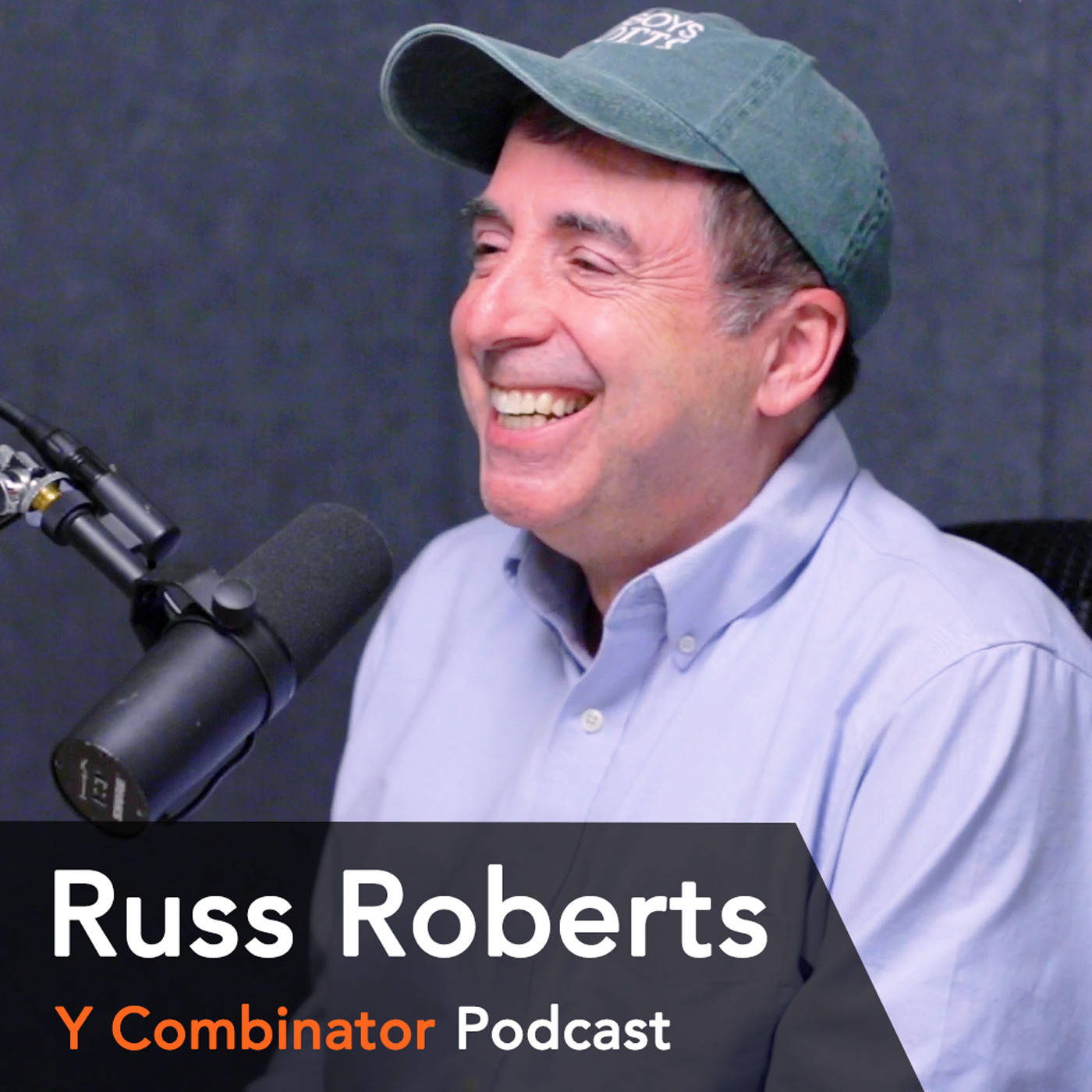Most entrepreneurs don't seem to have money as their primary motivator. Money is just the means of keeping the business moving. What they really want is to make a mark on the world.
Russ realized there was a sizable audience willing to listen to what he had to say, and it was exhilarating!
His podcast, Econ Talk started with a few thousand listeners more than a decade ago and has since grown by a few orders of magnitude.
The podcast started with basic economic ideas which were useful in business (some examples below) but have since transitioned into interesting topics that Russ Roberts wants to learn more about.
What kind of econ ideas have been covered in EconTalk that listeners found useful? Opportunity cost, comparative advantage, and emerging order, among many others.
Opportunity cost is the idea that when you do something, you can't do something else. It sounds trivial, but It's not in practice, and it's easy to forget that.
Comparative advantage is the idea that there are things that are too expensive for you to do for yourself, and you should pay someone else to do them for you. When do you hire director marketing? When you hire an account, when do you hire an HR director ...etc.? Giving up control is very challenging for for most, for a lot of people, especially founders, and so being forced to think about that's probably a good idea.
Russ says that the most interesting thing that people have found useful in his podcast is the idea of emerging order. It is the idea that certain things can solve themselves on their own, that there are forces that work on problems, even when you don't explicitly try to control them and solve them. That just is not a natural idea, it is not the way we're taught, but it's true.
Economics, when it is well taught, should give students a lens to understand the world.
Instead of asking his students to memorize concepts, Russ tries to explain his view through a narrative, so that consumers could really understand what he wants to convey. He even created a series of rap videos to teach economics!
"The curious task of economics is to demonstrate to men how little they really know about what they imagine they can design." ~ Friedrich Hayek
The answer to this question lies in a question of itself. How do you get people to pay attention to you? How do you get to be honored? How do you get to be respected?
In the eyes of Adam Smiths, the economist, there are two ways.
(1) Be famous, wealthy and powerful.
(2) Be virtuous and wise.
One of these is easier, but it won't make you happy.
Economists focus too much on thing that are measurable, and forget about other things.
For example, if you look at medicine, it might seem like a binary problem: people either live or they die. But what about quality of life? If you are living a horrible life under treatment, and you die shortly after the treatment ends, this is not a victory, it's a mistake.
What about dignity? We might be able to write checks for anyone whose job is being replaced by a robot, but guess what, many people would prefer to find another job instead. There is a sense of dignity in being able to work for money, which you then use to provide for your family.
The data often struggles to help economists to make a non-quantifiable decision. It's important to realize that, and understand that sometimes a decisions cannot be made on data alone.
Investors often have expectations different from those of a founder, and as a company gets bigger, the nature of work and focus of a founder has to change. It is simply not enough for a company to remain in its present state, as the markets won't let it.
This inevitably creates a struggle for the founder, and the company, but is only induced because of this constant need to grow bigger than their current state.
We all have a desire to be part of something larger than ourselves, something that's transcendent in history. It. is a very powerful human urge, related to tribalism.
You can worship anything. A lot of people mistakenly worship beauty, but your beauty will fade. Others worship money, and their money does not give them true satisfaction. Sports is a worship of human effort and failure. There are a lot of options.
Religion typically helps people live a life without doubt, giving answers to all the questions of life. Russ, on the other hand, practices Judaism as a way to wonder about the mystery and the wonder of life, things we do not understand.
